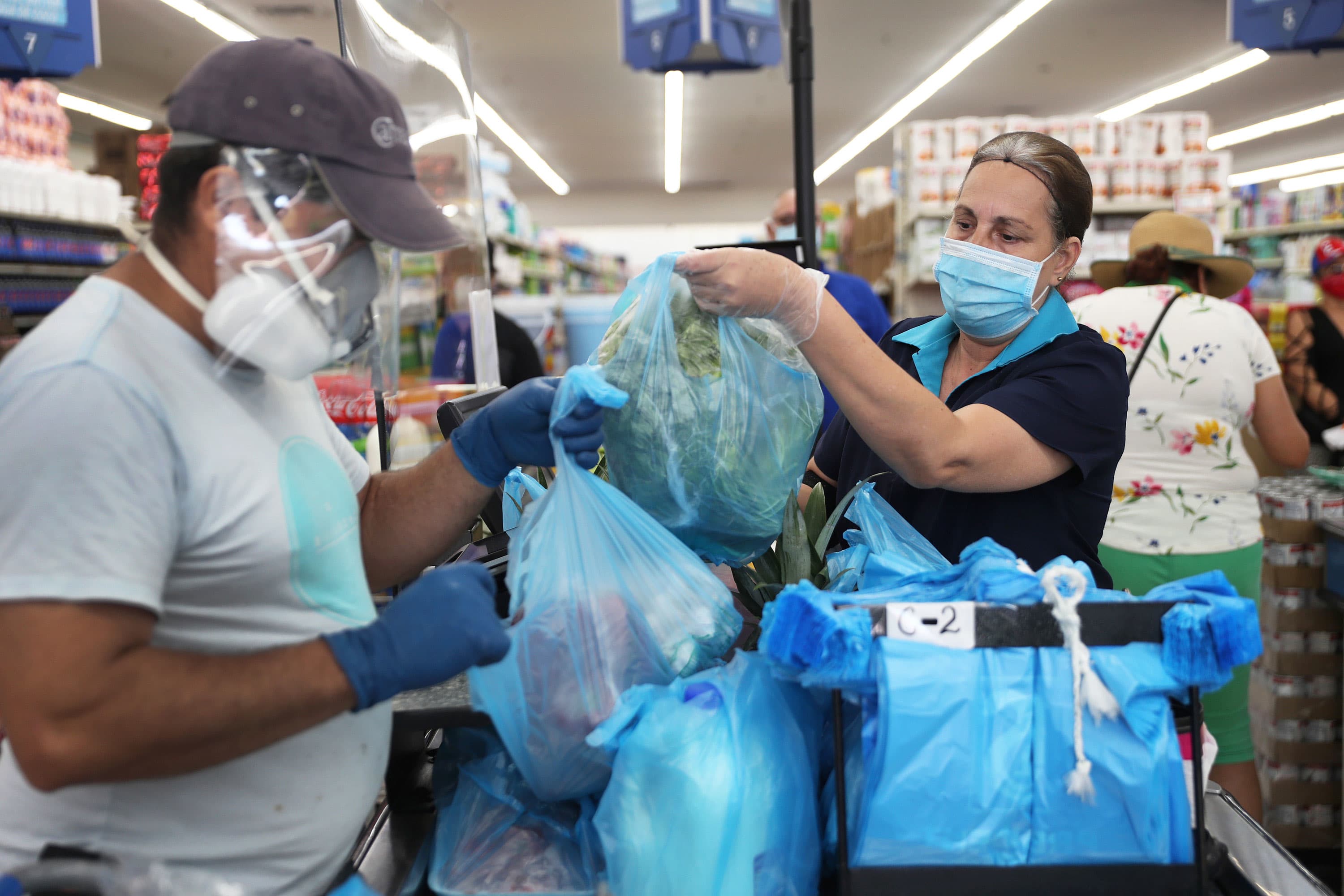Melissa Gracey says she began buying eco-friendly products after reading about Anita Roddick, founder of the environmentally friendly store “The Body Shop.”
Years later, she drives an electric car and considers being environmentally conscious with her money a lifestyle, even if it costs a little more.
“We need to show that these things are important,” Gracey told NBC 6.
Gracey says she avoids using paper products, pays special attention to the packaging when she shops and buys in bulk to use less plastic.
Get South Florida local news, weather forecasts and entertainment stories to your inbox. Sign up for NBC South Florida newsletters.
Companies have noticed customers like Gracey and continue to market more products as eco-friendly. But she says people need to do some research because not all eco-friendly claims are backed up.
“Sometimes, companies can say they are doing something that is eco-friendly, and it turns out they’re really not,” Gracey said.
It’s known as “greenwashing” - when companies mislead consumers about how “green” or “eco-friendly” their products are.
The Federal Trade Commission, the Securities and Exchange Commission, and a range of nonprofits police this type of behavior.
But consumers advocates say the best defense is for consumers to do their research and look for specific claims.
The spotlight on these claims has increased as climate change moves higher in people’s minds.
According to its website, the latest enforcement action from the Federal Trade Commission related to environmental marketing was in 2019 against a Miami Beach company, Truly Organic.
Regulators say the company, which is now known as Truly Beauty, advertised its products as 100% organic when they were not and misled consumers about getting a certification from the USDA. The company agreed to pay $1.76 million but didn’t admit liability.
The company did not respond to our request for comment but it previously sent a statement to NBC 6, writing in part, “We decided to settle the lawsuit in order to focus on our brand, products, customers and to avoid the distraction of prolonged litigation.”
The Federal Trade Commission began its “Green Guides” in 1992 and have since been revised several times. The FTC says the guidelines are “designed to help” companies “avoid making environmental claims that mislead consumers.”
Before government regulators come in, some companies do try to self-regulate through programs like the non-profit BBB National Programs.
“If consumers feel like they’re getting ripped off, that the company cannot stand behind their claims, they’re going to go elsewhere. They’re going to take their dollars someplace else,” Mary Engle said.
Engle spent 30 years policing green claims at the FTC. Now, she’s the executive vice president on policy for BBB National Programs. She helps determine if the “green” product really is green.
“Look for very specific benefits,” Engle said. “Those are more likely to be backed up and substantiated than kind of the general eco-friendly claim.”
Tide Purclean is an example of the non-profit’s work.
Last year, the parent company for the product, Procter & Gamble, modified its advertisement after the non-profit asked the company to specify the laundry detergent was 75% plant-based, so consumers wouldn’t think it was 100% plant-based. Procter & Gamble has not yet responded to NBC 6’s request for comment.
Engle from BBB National Programs told NBC 6 - when they flag a claim - most of the time companies change it.
She says that’s because federal or state regulators can come in with major fines if they don’t.
BBB National Programs does have an appeal process. However, if the company is still found to be misleading consumers after that process, the non-profit moves to file a complaint with the FTC.
Consumers like Melissa Gracey are optimistic about the future as more companies pledge to be green and people try to hold them accountable.
“I think it’s because it makes them look good. It’s in fashion and everyone is talking about it,” Gracey said. “I think it’s because consumers have proven that they will buy these things.”



